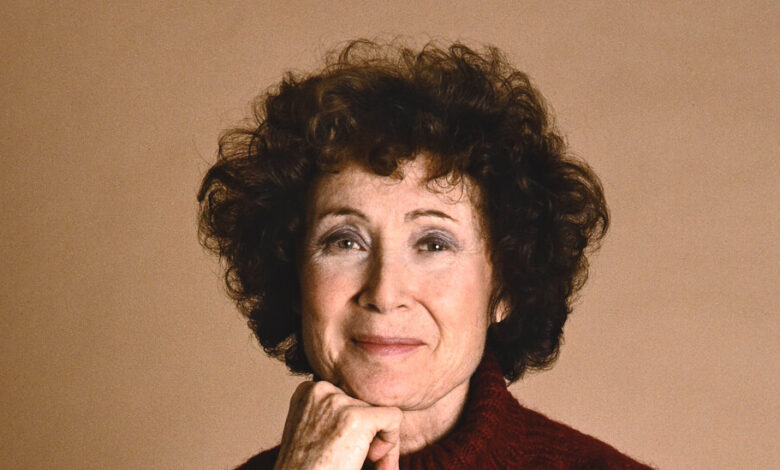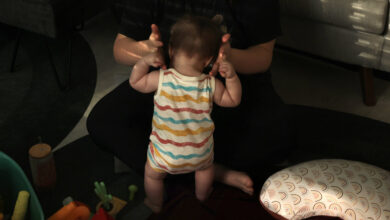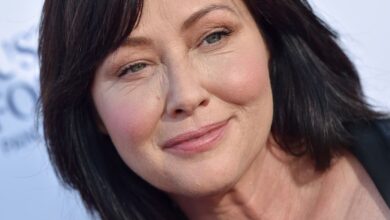Helen Marcus, Prolific Photographer of the Famous, Dies at 97

Helen Marcus, a late-blooming photographer whose evocative black-and-white portraits of literary figures and film and television personalities graced book jackets and magazine covers for decades, died on Oct. 1 at her home in Manhattan. She was 97.
Her death was confirmed by her sister, Irene Feuerstein.
Ms. Marcus’s photographs were disseminated in a wide variety of venues. Some were seen in annual corporate reports, and one was the model for an etching on a Swedish postage stamp honoring the Nobel Prize-winning novelist Toni Morrison. She also became a champion of her fellow professionals.
Her fame as a photographer, and her leadership role as a defender of her profession on issues of copyright and credit, were all the more notable because the field at the time was so overwhelmingly dominated by men.
Ms. Marcus founded the New York chapter of the American Society of Magazine Photographers (later the American Society of Media Photographers) in 1982 and served as its national president from 1985 to 1990. From 1998 to 2007, she was president of the W. Eugene Smith Memorial Fund, an organization, named for the celebrated photojournalist, that was established in 1979 to help independent photographers complete their projects.
Responding to a profile in The New York Times crediting George Lois, the Madison Avenue art director, with designing striking covers for Esquire magazine, Ms. Marcus complained, in a letter to the editor in 2008, that the article did not adequately acknowledge Carl Fischer, the photographer whose images loomed large in many of those designs.
“It is akin to publishing pictures of the Sistine Chapel and mentioning the pope who paid for them,” she wrote, “but not the painter.”
Helen Mae Marcus was born on Oct. 28, 1925, in Manhattan. Her mother, Augusta (Hittleman) Marcus, an immigrant from Russia, was a homemaker. Her father, Joseph, owned several shoe stores.
She graduated from A.B. Davis High School in Mount Vernon, N.Y., and earned a bachelor’s degree in theater and economics from Smith College in 1946.
In addition to her sister, she is survived by a brother, Carl. Another brother, Bernard, died before her.
After working with the theater director Hal Prince, Ms. Marcus was an associate producer and a producer from 1955 to 1974 at Goodson-Todman Productions, the company that developed popular television game shows like “To Tell the Truth” and “What’s My Line?”
“Her hobby was photography, and she became so skilled that she finally abandoned television for a career as a professional,” Ira Skutch, a director who shared an office with Ms. Marcus at Goodson-Todman, wrote in “I Remember Television: A Memoir” (1989).
Once Ms. Marcus became a full-time photographer, her work appeared in Time, Forbes, Gourmet and other magazines, and in The New York Times. Her photographs are included in the permanent collections of the National Portrait Gallery and the International Center of Photography.
She was among the first Americans invited to China in the wake of the Cultural Revolution in the early 1970s. She taught at the Parsons School of Design, the School of Visual Arts and the Tisch School of the Arts at New York University.
Ms. Marcus, who studied with Philippe Halsman, a Life magazine photographer, became known, like him, for her vivid portraits. Among her subjects were the authors Mary Higgins Clark, Norman Mailer and Tom Wolfe; the actors Kitty Carlisle and Cliff Robertson; and the talk-show host Merv Griffin.
In 1977, Toni Morrison was said to have been dissatisfied with the author photograph on the jacket for one of her early books and was seeking another photographer for her next one. Her publisher’s publicist enlisted Ms. Marcus, who invited Ms. Morrison to her spacious apartment and shot four rolls of film of the author sitting at the dining room table.
When Ms. Morrison won the Nobel Prize for Literature in 1993 and Swedish postal officials decided to honor her with a stamp, she suggested that they contact Ms. Marcus. Her photograph inspired an etching, which appeared on the stamp (with Ms. Marcus’s credit).
“It’s probably the most reproduced photograph I ever made,” Ms. Marcus said in an interview with New Letters magazine in 2007.
She offered a different kind of superlative for the novelist Jerzy Kosinski, whom she photographed in his apartment above Carnegie Hall. During that session, she said, she “felt real vibes coming from him, and exchanging with you more than anybody I ever experienced.”
He was, Ms. Marcus added, “probably the sexiest person I ever photographed.”





